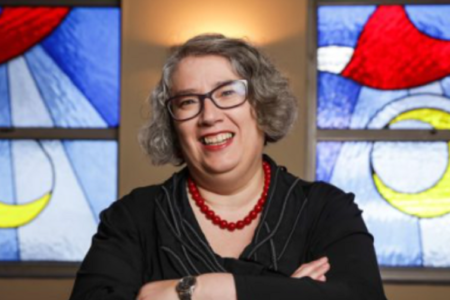Interview by Andrew Humphries
Thanks for the opportunity to have a chat, Duncan. Let’s start at the beginning. You were born and raised in New Zealand. Tell me about your childhood.
I’m the seventh of eight children and I spent my early life in rural Southland, on the South Island, on a sheep farm. My dad had acquired the property after returning from World War II. The area had a high proportion of people with Scottish roots. There was the choice of being in the Presbyterian Church, or down at the pub. Our farm was in Hokonui, a centre of illicit whisky making during New Zealand’s prohibition years.
So I take it your parents went down the Church path?
No, not really, my father was at the pub and my mum was an active member at the church. I grew up among a hunting and fishing culture. And from a young age I was also a part of the Presbyterian Church’s youth movement.
That was your mum’s influence?
Yeah, Sunday School was part of that, as well as the young adult movement of the Presbyterian Church. So I grew up exercising leadership in that, as well as being part of the Scripture Union program at high school. My first memories of church would be dressing up for Christmas pageants, but I also recall clearly being baptised at the age of four. Even then there was a sense of something spiritual going on in me.
So you clearly remember thinking at the time there was something happening that had really captured you?
Oh yeah, there was a sense of curiosity around faith all the way through my childhood, and as a teenager a deepening of it.
What was the progression then through say high school in terms of your faith?
There were some significant moments as I came to terms with reading through scripture and taking part in youth groups. There was a sense of focus and direction. In high school, I was involved with student leadership, so I was leading a group of my peers and engaging with organising the development of youth work, even as a high school student. At the age of 17, I became a candidate for formation in ordained ministry.
Really, at 17?
Yes, I had a real sense that this would be my vocation. A group of lay preachers took me under their wing, and I used to get on a little motorbike and head off to country churches, with a guitar on my back, and lead the services.
Do you recall telling your mum and dad at the time that this was the direction in which your life was heading?
Yeah, I told my mum and it was interesting because she said she had always had a sense there might be something special for me in terms of the Church, but she’d made a commitment to herself that she wouldn’t tell me that. Whereas my dad, when I told him, he said, “oh well, that does it, you’re out of the duck shooting club”. But he’d also had a sense that something was going on on a spiritual level, even though he didn’t see himself as religious.
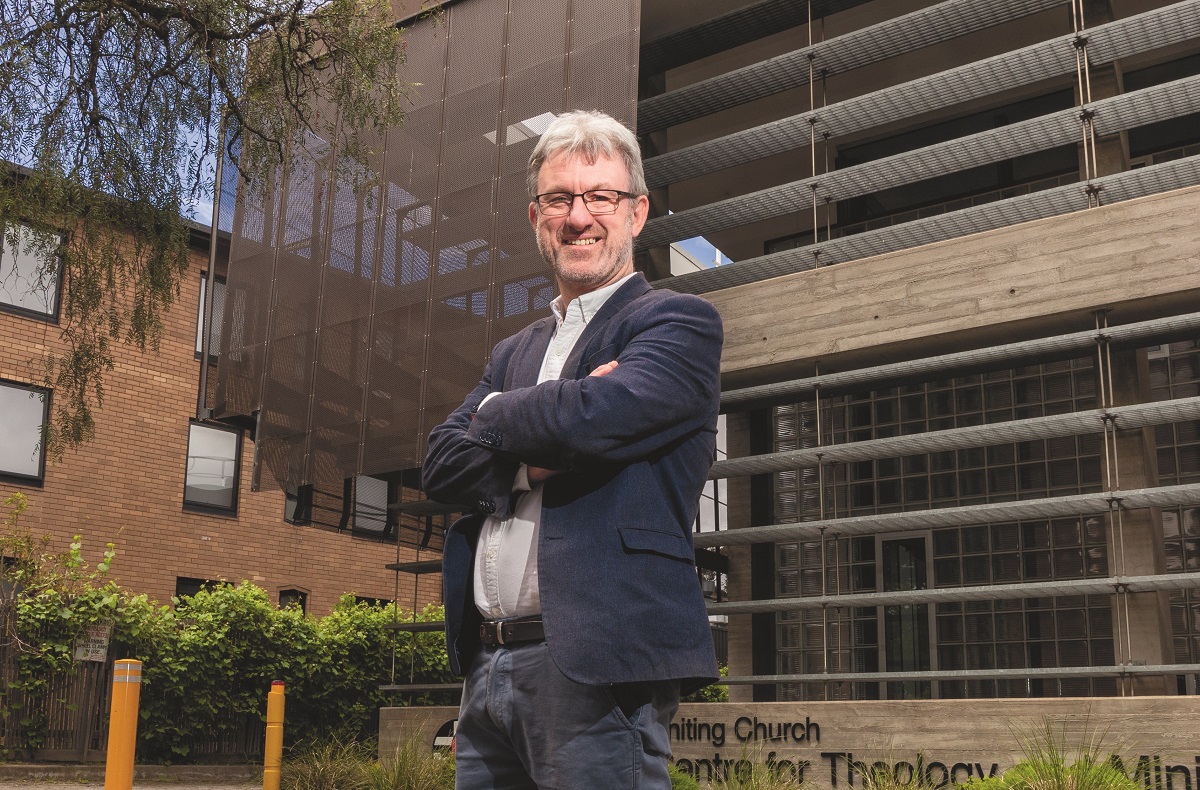
Duncan filled a number of important roles within the Queensland and NSW/ACT Synods before moving to Melbourne in 2018.
I wanted to ask you a bit more about your father, because living with him wasn’t easy, was it?
No it wasn’t. My father was an alcoholic and, as I said earlier, while mum was down at the church, he was down at the pub. I struggled with the impact of his addiction all the way through my childhood.
This is uncomfortable to talk about, isn’t it?
It’s fine, we can talk about it. Through it all I developed a deep interest in psychology, and what’s going on around addiction, what’s going on around co-dependency, which is how our family learned to cope with or cover up what’s going on. So there was a sense of all of that from an early age as well, which probably meant I was having to deal with stuff that people often don’t deal with. There was a sense of knowing you can’t really invite your friends around, not knowing what’s going to be happening at home. Dad was unpredictable. If he had been drinking whisky, he could get violent, if he’d been drinking gin, he came home depressed, and if he’d been drinking a few rounds of beer at the pub, he’d come home very talkative.
Do you reflect on how all this has shaped you?
Yeah, I do. I’m thankful for my dad. What shaped me was his interest in honest conversation and being able to reflect on philosophy and history, and not being caught in a religious bubble. Add to this my mum’s interest in theology mixed with my dad’s curiosity around mysticism.
So in many ways you had a strong bond with your father?
Actually, my dad had a couple of goes at sobering up and getting into rehab. So in those moments we discovered the man who could talk honestly with care. Dad opened up about his experience of World War II. So on reflection, sure, there was a local culture around alcohol, but there was also the effect of post-traumatic stress. There were a lot of people experiencing that from World War II.
So, let’s return to the age of 17 and what’s shaping up to be your future.
Well, I headed off to Otago University and did a degree in history and music over four years. I was involved with the on-campus Christian groups, as well as helping with the Youth For Christ Campus Life program, and that was part of my ongoing commitment to working with children and families. I was also grappling with a faith that could the pass the plausibility test. At this stage I realised I needed to take leave and so the Presbyterian Church gave me up to five years off to explore other things. So I spent two years as a youth worker, I got married, and joined a band.
Where would your band play?
We played in coffee bars. But every couple of months we played in the local Youth For Christ rally, a big youth gathering, maybe 300 kids. We were banned at one point because someone thought we’d got too political. I had to talk our way back in by explaining that social justice and Christian faith go hand in hand. My wife, Ennis, and I then moved up to the Bay of Plenty and we spent three years in Katikati, where I worked in the kiwifruit industry, market gardening and at the local post office. Part of the market gardening involved training young adults in small business and life skills, funded by the Department of Maori Affairs. During this time I was helping to run youth groups and launching a monthly restaurant church.
So, you’ve come towards the end of that five-year break and I guess you’re now crystal clear about your direction?
Yeah, it was “I think I’ll stick with the Presbyterians” (laughs). So I did three years at Knox Theological College, where Presbyterians and Catholics completed their theological education together through University of Otago. We were also bringing up a young family, so by the time I finished those three years at university we had three children under five.
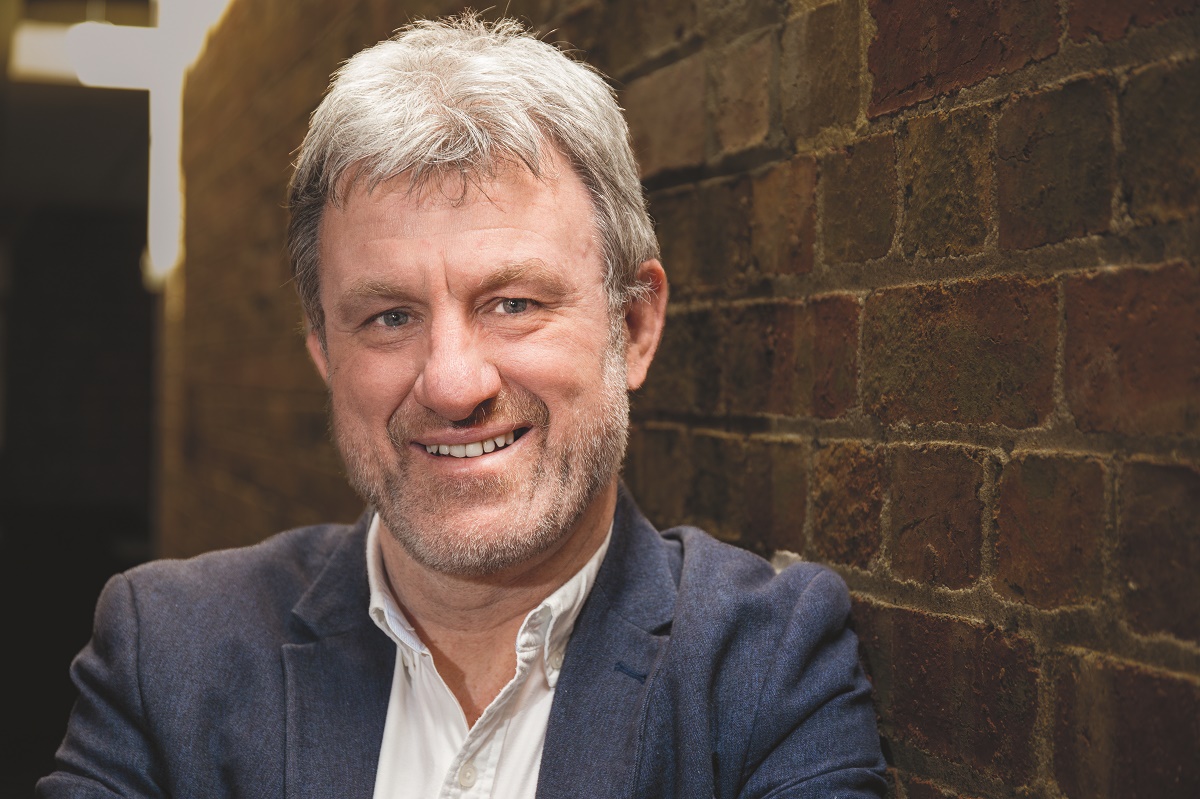
In Melbourne, Duncan stepped into the role of Presbytery Minister Team Leader with the Port Phillip East Presbytery.
So it was ordination and then your first placement?
Yeah, that’s right, and we went up to a town called Tokoroa, in the middle of the largest pine plantation in the Southern Hemisphere, which was designed for the pulp and paper mill just down the road from where we lived. A lot of the people working in the pulp and paper mill had come from Europe and had engineering skills and so on, and a lot of people working in the forest were from a Pacific Island or Maori background, so it was quite a multicultural situation. The church I was the Minister of had a program working with young Pacific Island and Maori people, and we were developing those young teenagers and young adults as disciples and leaders of the church, teaching them how to preach, how to lead worship. So that meant a much more multicultural congregation. We had people from China, from the Philippines. It was quite a mix.
During your first year as Minister, tragedy struck, didn’t it?
Our youngest daughter Kristen was killed on the road in front of the manse. She had walked up the driveway and seen a dog across the road and she was hit by a car driving past. That was 1992, my first year as a Minister.
How old was she?
She was 18 months old. Earlier that year, my dad had died. Then in September Kristen died, so that became quite a significant test for me, as you can imagine.
Well, I was going to ask that. It was an obvious test of your faith?
Well, I’d already done a lot of work on the question of God’s presence with us in suffering, and recognising that there’s no way that we’re immune from tragedy like this as followers of Jesus. We all go through challenges in life. But what is faith going to be about in terms of being able to walk through that and have a sense of hope in the middle of sadness? Kristen’s funeral was not a typical Anglo funeral. We had an open casket in the church for two days, an adaptation of the Maori tangi tradition. And the Pacific Island community brought with them their traditions to add to the mix. And then a month later the church secretary’s daughter was killed in a car accident as well, so we went through this intercultural experience all over again. One more month on, a woman I met in hospital died. A lot of her family were Maori and they were excited to find that the church was developing this blend of traditions around grieving. We discovered that Ennis was actually related to many of the local Maori people. There was a sense of a genuine intercultural partnership between these groups that shaped the next two years of ministry.
Your father dies, then Kristen, then your church secretary’s daughter and finally the woman you had met in hospital. Those were four blows that might have done anyone in.
That’s true. I said to the congregation when I came back after two weeks of having a break, “Look, I’m going to be running on three cylinders out of four for a while”. The local Presbytery did a lot of work on grief with us as a congregation. When the Minister is going through a bereavement it’s not easy for a congregation, especially when it’s the death of a child. We learned a lot as a community about sharing in the work of grief, seeing death and bereavement as a part of life together. It’s not something that is on the outside of faith, but it’s a part of our faith.
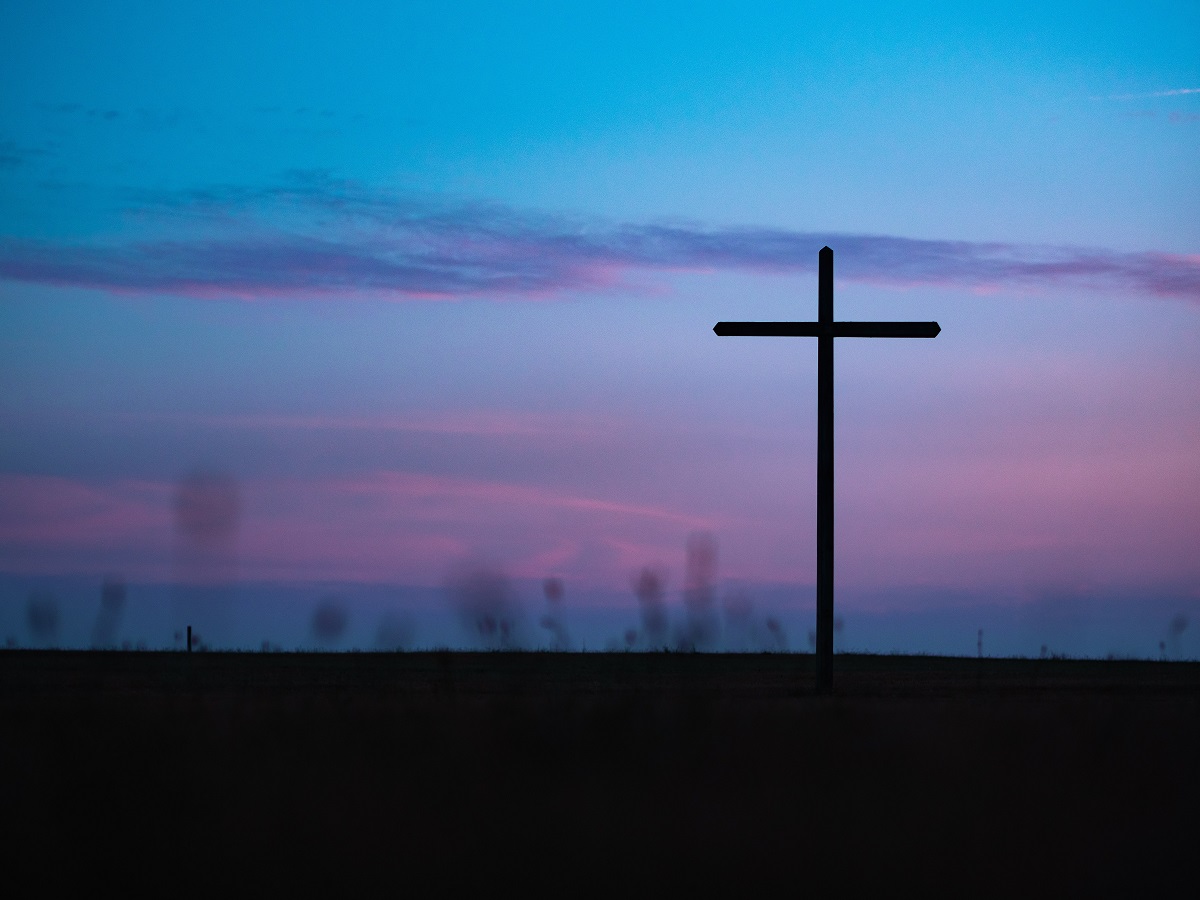
A number of tragic events in New Zealand tested Duncan Macleod’s faith.
So you had three years there as Minister?
Towards the end of the third year, we moved to Wellington where I spent six years as National Youth Ministry Coordinator with the Presbyterian Church of Aotearoa New Zealand. Part of that role was about resourcing youth workers and youth leaders in congregations across New Zealand with distance education. Working with colleagues in the Methodist, Catholic and Anglican churches I published magazines, books and websites, and ran lots of conferences and training events. By the end of that time the kids were about to become teenagers and they would say, “Dad, you’re on the road all the time”. So I looked at a couple of options that would give me more time with them, and a role came up in Australia, on the Gold Coast, working with what was then known as Robina Surfers Paradise Uniting Church. They needed someone to come and help them with their youth work and so we moved to the Gold Coast in 2001. I ended up working for the Queensland Synod as a mission consultant for nine years, focusing on what it means to be a church in the post-modern age, looking at strategies for church planting, growing large regional churches and starting micro-churches.
As well as the mission work, I also had a portfolio around encouraging Christian education, making sure people had good resources. I did some work with Trinity Theological College in Brisbane, teaching media studies and ministry with families, and encouraging continuing education for Ministers. When the global financial crisis hit in 2008 many of my colleagues were made redundant. At that point I was responsible for funding new missional projects, helping develop social entrepreneurial work or new initiatives. When the funding finally finished, my role ended.
We moved to Canberra, where I worked as Presbytery Minister: Mission & Education. During this time, I was in a task group looking at how we reimagine theological education in the NSW/ACT Synod.
I was then called into the role of Uniting Learning Network Director with Uniting Mission & Education (UME), Synod of NSW/ACT, based in North Parramatta. This involved leading a resource team of consultants, working with staff at United Theological College, and leaders across the Synod to develop a holistic, across-the-board approach to learning and mission. It was about uniting mission and education and getting a sense of a strategy for the ongoing life of the church. In 2018 the Synod restructured UME and divided up my role, leaving me with the opportunity to look at new horizons in Melbourne.
In Melbourne, you were appointed Presbytery Minister Team Leader at Port Phillip East Presbytery, weren’t you?
Yes, my role involved leading a great team, but more than that it was focused on the culture of the Presbytery, resourcing and warmly encouraging ministry agents and members, helping with property and mission. Before I arrived, the Presbytery’s internal review had revealed that there was a lack of connection and trust between colleagues, between congregations and the Presbytery. My two colleagues, Anneke Oppewal and Craig Mitchell, and I set out to find ways of growing capacity and confidence. The focus has been on resourcing, and growing a vision for mission, and getting to know one another more. People tell me that they now have a much stronger sense of being part of a movement, which has grown during the COVID years.
Then Jenny Byrnes retired as equipping Leadership for Mission Executive Officer and you threw your hat in the ring for the position?
I saw the EO position come up, and after a lot of discernment made myself available for a conversation. I’ve worked with Jenny in the Money for Mission project, the Here for Good project, as well as the Synod’s Theological & Ministry Education Committee, so I was somewhat aware of the heavy load she carried.
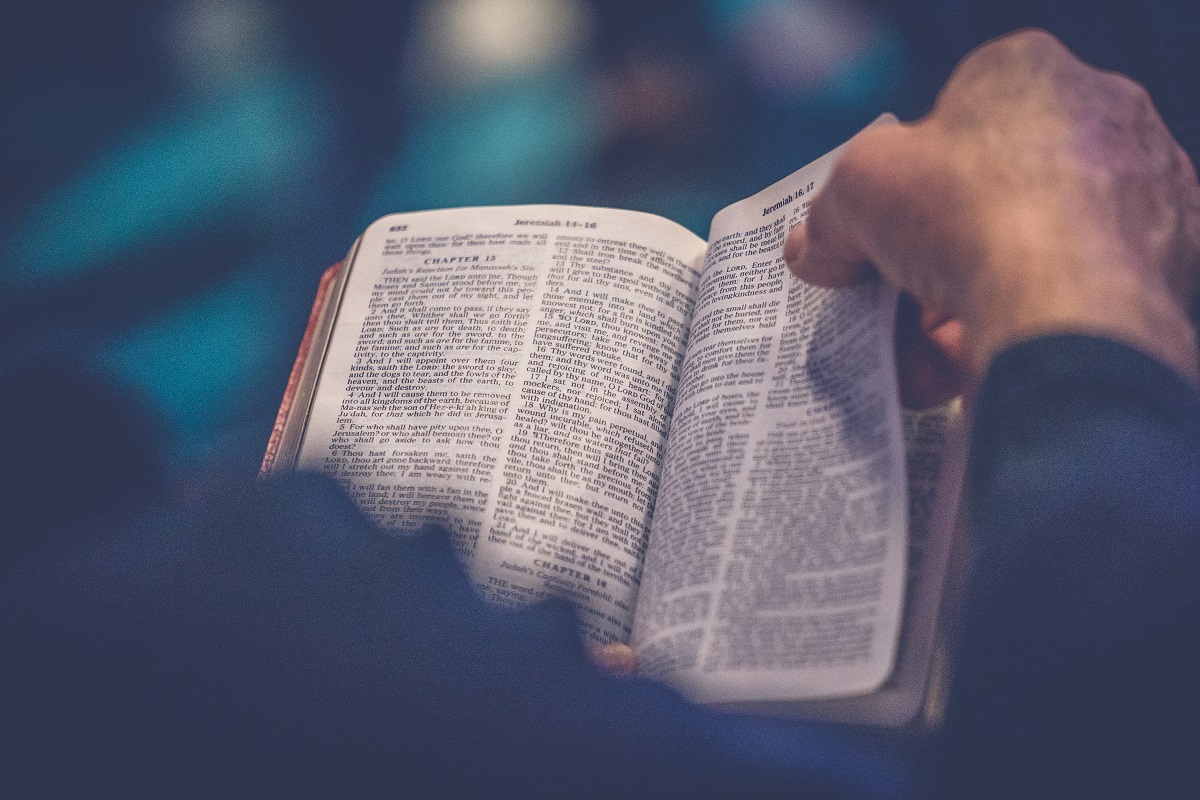
“I think that what we’re experiencing at the moment is the challenge of learning to be a church in a post-Christian environment,” says new equipping Leadership for Mission executive officer Duncan Macleod.
You started officially this month. Do you find anything daunting about it?
Well, I know how much hard work will be involved in the EO role. There are significant budget concerns that are always going to be a challenge. We need to be strategic about how we employ staff and ensure that they’re part of a healthy, life-giving environment. People can burn out so quickly, particularly when they’re experiencing uncertainty and isolation. COVID-19 has obviously been one of the stresses.
Can I ask you what you see as the issues facing the Uniting Church in general?
I think that what we’re experiencing at the moment is the challenge of learning to be a church in a post-Christian environment. We’re in a space where trust in institutions like the church is hard to gain, let alone maintain. In many ways we now have to think about different models of being congregations, agencies and so on. There’s a sense of triage in that some of our congregations have what it takes to enter the next 20 years and do something creative, but some won’t survive that long. I think of Dylan Thomas writing, “Do not go gentle into that good night … rage, rage against the dying of the light”. So let’s not just fade away, but let’s have a good go at the next five to 10 years.
Another challenge is how we engage with emerging generations who may have values and approaches to life that are quite different to the generations that formed the Uniting Church. We haven’t had it easy being a multi-generational church since the 1950s and 1960s. So how do we take note of the values and the life habits of people who are now in their 20s and 30s, recognising that those attitudes and values are usually formed in the formative years, from 16 to 25? My own children are now in their 20s and 30s, and I’m very much aware that for the Church to be engaging with those generations we have to learn new ways of connecting with people, including face-to-face as well as online spaces.
At the very heart of what challenges the church is the connection between our approach to community service, advocacy, community programs, and how we understand the gospel. We’re still learning to develop a range of ways of talking about what we mean about Jesus, what we mean about God, what we mean about the Holy Spirit, and how that relates to our own lives, and being able to talk about it as much as being able to put it into practice. If there is a theological belief at the heart of the Uniting Church it is probably the call to love others as Jesus has loved us. But I think we need to have a more robust and broad set of conversation starters that link loving action with our many and varied experiences of God.
Any final thoughts, Duncan?
For me, the challenges about freedom from addiction, freedom from worrying about how other people think about you, are at the heart of my own development of faith, a lifelong development of faith. For some people it might be reconciliation, being able to relate to one another, which takes us beyond the usual “God forgives you and that’s the good news” to what is the good news around how we engage with the world in climate crisis? How do we engage with the world where we’re having to grapple with what it means to be who we truly are, particularly around the issues of sexuality and gender identity? I think we’ve got a lot that the Uniting Church can offer and what I’m seeing is possible for us as staff at eLM and across the Uniting Church is to consider how we connect the practice and the talk of what we’re about.


